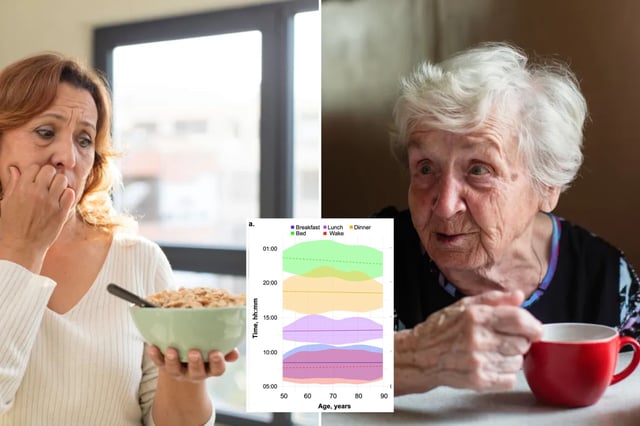Overview
- Researchers analyzed 2,945 UK adults aged 42–94 over more than two decades, using repeated health surveys and blood samples.
- As participants aged, breakfast and dinner shifted later while the daily eating window narrowed.
- Each hour of delay in breakfast timing was linked to about a 10% higher adjusted risk of death during follow-up.
- Later breakfast consistently coincided with depression, fatigue and oral-health problems, as well as reported sleep difficulties and challenges preparing meals.
- Individuals with genetic markers for an evening chronotype tended to eat later, and the authors emphasize these are associations with limitations such as self-reported timing and limited data on snacks and physical activity.



